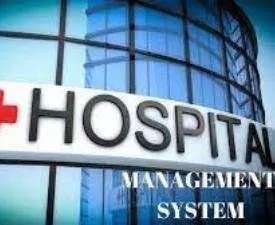Description
Course Name: Master Diploma in Hospital Management
Course Id: MDHM/Q1001.
Education Qualification: Graduate.
Course Duration: 370 hrs.
How You will Get Diploma Certificate:
Step 1- Select your Course for Certification.
Step 2- Click on Enroll Now.
Step 3- Proceed to Enroll Now.
Step 4- Fill Your Billing Details and Proceed to Pay.
Step 5- You Will be Redirected to Payment Gateway, Pay Course and Exam Fee by Following Options.
Card(Debit/Credit), Wallet, Paytm, Net banking, UPI and Google pay.
Step 6- After Payment You will receive Study Material and Online Examination link on your email id.
Step 7- After Completion of Course Study give Online Examination.
Step 8- After Online Examination you will get Diploma Certificate soft copy(Scan Copy) and Hard Copy(Original With Seal and Sign).
Step 9- After Certification you will receive Prospect Job Opportunities as per your Interest Area.
Online Examination Detail:
- Duration- 120 minutes.
- No. of Questions- 60. (Multiple Choice Questions).
- 10 Questions from each module, each carry 10 marks.
- Maximum Marks- 600, Passing Marks- 40%.
- There is no negative marking in this module.
| How Students will be Graded: | ||
| S.No. | Marks | Grade |
| 1 | 91-100 | O (Outstanding) |
| 2 | 81-90 | A (Excellent) |
| 3 | 71-80 | A (Very Good) |
| 4 | 61-70 | B (Good) |
| 5 | 51-60 | C (Average) |
| 6 | 41-50 | P (Pass) |
| 7 | 0-40 | F (Fail) |
Benefits of Certification:
- Government Authorized Assessment Agency Certification.
- Certificate Valid for Lifetime.
- Lifetime Verification of Certificate.
- Free Job Assistance as per your Interest Area.
Syllabus
Master Diploma in Hospital Management
Basic Concept of Health
Concept of Health and Disease, Concept of health & disease and well being, Natural history of disease and role of hospitals to offer various levels of care, Prevention aspect of diseases, Dynamics of disease transmission, Changing pattern of diseases, Concept of health indicators, Preliminary Human anatomy and Physiology, Basic concepts of human anatomy, Basic concepts of pathogenesis of common diseases, Basic concepts of interpretation of investigations reports, Commonly used Medicine in a hospital, Narcotic drugs, use and abuse of drugs, Dispensing of medicine, drugs store, drug stock / purchase of medicine, oxygen, I/V Fluid, Chemicals etc.
Healthcare Services
Demography & Vital Statistics: Demography – its concept, Vital events of life & its impact on demography, Significance and recording of vital statistics, Census & its impact on health policy, Health scenario of India- past, present and future, National Health Policy & Inter-sectoral Co-ordination, Background objectives, action plan, targets, operations, achievements and constraints in various National Heath Programme, Healthcare delivery system in India at Primary, Secondary and Tertiary Care, Indigenous system of medicine in India, Community participation in healthcare delivery system, Health system in developed countries.
Hospital Based Healthcare
Overview of Hospital, Concept of Modern Hospital & Privatization in Health Sector, Public Sector Hospitals and Level of care / offered facilities, Effects of Globalization in Health care Concept of Corporate Hospital in developing countries Infrastructure and lay out of an ideal corporate hospital Functioning of modern hospitals & changing need of patients, Hospitality in Hospital Care, Invasive and non-invasive diagnostic facilities in modern hospital, Care offered in Specialty and Super specialty Hospitals.
Epidemiology
Principles of Epidemiology, Natural History of disease, Methods of Epidemiological studies, Epidemiology of communicable & non-communicable diseases, disease transmission, Host defense immunizing agents, cold chain, immunization, disease monitoring and surveillance, Screening and surveys Investigation of an epidemic and role of hospital in its control, introduction to epidemiology (concept, terms, aims & uses), definition of epidemic, endemic, pandemic, sporadic, Prevalence and Incidence. Epidemiological methods- basic idea of Cohort study, Case Control study and RCT, Epidemiology of communicable diseases (TB, STDs, Diarrhoea & HIV/AIDS) and Epidemiology of Non communicable diseases (CHD, Cancer, Diabetes, Hypertension & Obesity).
Health Education
Aims & Principles of Health education, Methods of Health Education, Effects of health education Levels & practice of health education, Need of Health education to attain positive health, Health care reporting and role of NIC, Overview of Health Care Sector in India – Primary care – Secondary care – Tertiary care – Rural Medical care – urban medical care – curative care – Preventive care – General & special Hospitals-Understanding the Hospital Management – Role of Medical, Nursing Staff, Paramedical and Supporting Staff – Health Policy – Population Policy – Drug Policy.
Hospital Support Services
Methods of Sterilization CSSD, Nosocomial infection and hospital acquired infection control committee, Laundry services , Security Services (General & Others like fire, gas etc.), Transportation Services (External & Internal), Ambulatory Care, Hospital Stores, Mortuary (Preservation, transportation & religious formalities), Kitchen services, House Keeping, Maintenance, Medico Legal Aspects of Emergency Services, Out Sourcing of Services, Radiology Services, Essential of Hospital Support Services & Physical Infrastructure.








Reviews
There are no reviews yet.